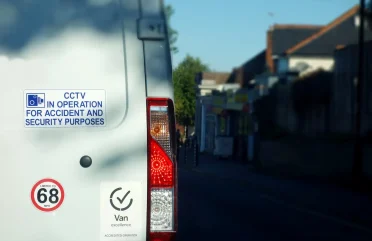
The worsening tool theft epidemic is making van security a priority for operators, no matter what the size of their business, by leaving them vulnerable to lost work, enforced downtime and soaring insurance costs.
According to a survey from Volkswagen Commercial Vehicles (VWCV), more than one-in-four van drivers were hit by tool theft in 2024, compared to fewer than one-in-five the previous year.
The value of stolen tools rose by 40% year-on-year to an average of £2,433 per incident with VWCV saying 27% of thefts were valued at £3,500 compared to just 10% in 2023. The knock-on effect of the thefts included nine-out-of-10 victims being forced to take four days off work to replace stolen tools and repair vans and equipment, such as broken locks.
VWCV warned an increase in insurance premiums was a likely consequence for van drivers hit by tool theft and urged businesses to take steps to protect their vehicles and their contents, such as installing additional safety locks and boxes, fitting tracking devices on the vehicle and tagging tools as well as recording serial numbers.
John Ricardo-Neto, head of product planning at Volkswagen Commercial Vehicles, said: “Tool theft remains a huge issue for van drivers and businesses in the UK, and it’s concerning to see the number of incidents and the scale of their impact continuing to rise.”
According to the International Association of Auto Theft Investigators – UK Branch (IAATI), insurance claims for stolen tools can be hindered when vehicles lack sufficient security, which can result in reduced payouts or declined claims. IAATI said insurers scrutinise the security features of commercial vehicles when determining coverage and premiums and that inadequate protection leads to higher excesses, increased costs and limited policy options.
The Association of British Insurers’ (ABI) latest quarterly premium tracker found the average claim payout for theft of and from a vehicle increased by £319 (3%) in Q2 to £11,800 compared to the previous quarter.
Cutting costs
Utilities network company PN Daly has used an AI dashcam solution from Ctrack to cut insurance costs through improving driver behaviour and enhancing safety. It says the cameras have contributed to a 5% improvement in claims frequency and a 40% reduction in average claims costs while helping to reduce collision rates across the company’s 400-strong van fleet.
Nik Darby, contract manager at PN Daly said: “The positive impact on incident reduction, insurance costs and overall operational safety cannot be overstated, creating a responsible, secure and more efficient environment for our mobile team.”
The company says the ability to review video evidence has enabled it to streamline its claims process by cutting down on response times and providing clarity about what has occurred, which has contributed to an improved risk profile, resulting in lower insurance premiums.
Meanwhile, property repair firm Stellar Insurance Reinstatement Services has rolled out Surecam video telematics across its fleet of 80 vans operating in Scotland and the north of England to improve driver safety and combat rising insurance costs. It says the dual-camera system will enable it to challenge non-fault claims. The firm’s MD Ross Cooper said the system “will help us to eliminate avoidable insurance and fleet-related costs”.
A fine mess…
Van insurance comparison site Quotezone has warned van drivers that if they end up in an accident due to keeping a messy vehicle they could face fines, receive penalty points or invalidate their insurance.
Quotezone said an insurance company might refuse to cover a claim if it decided the driver was not looking after the van properly; showing a lack of care that made it unsafe to drive. It said the mess could be considered to act as a distraction to the driver and that objects not properly secured in the load bed that come loose in an accident could be found to be dangerous. Quotezone claimed if the police felt the mess was hazardous, drivers could be fined £100 and given three penalty points.
Quotezone added operators must provide accurate information to insurers to ensure their cover is valid. For example, they should tell insurers of any modifications, such as signwriting or branding, which could increase the risk of break-ins, and provide honest information about their occupation, parking locations and class of use. It warned that if a tradesperson opts for ‘social, domestic and pleasure’ insurance but uses their van for business, then the policy would be invalid.
Greg Wilson, founder and CEO of Quotezone, said: “Aside from being a legal obligation, motor and van insurance protects van drivers and companies from accidents, damage and theft.
“It is essentially a financial safety net and is vital if using a van for work, especially if there are expensive tools involved. Without proper cover, tradespeople are risking major losses, hefty fines and even a threat to their livelihood.”





